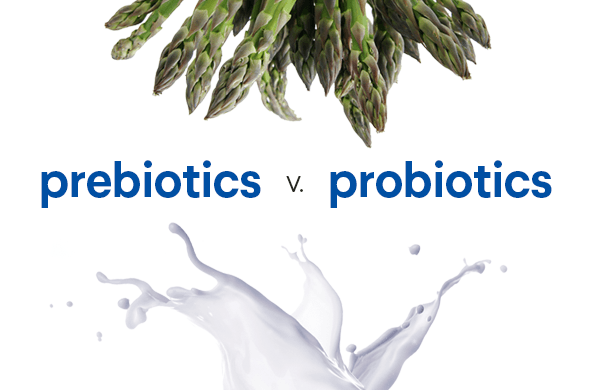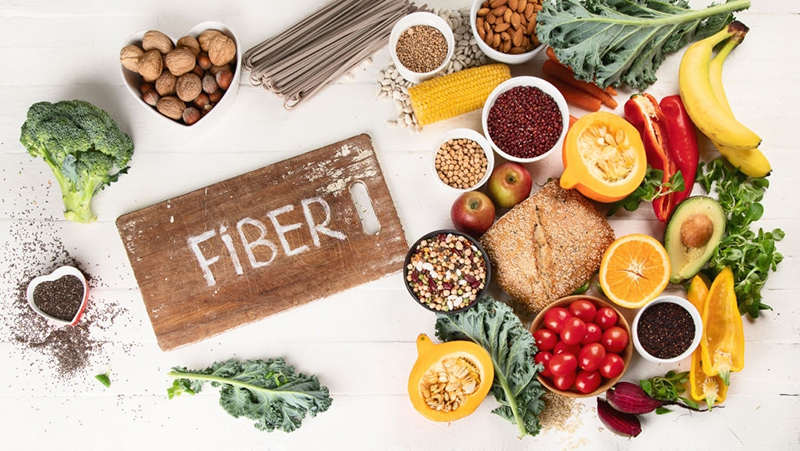The world of wellness occasionally perplexes me. I meditate, take CBD, and drink a glass of green juice every day. But every time I believe I’ve covered all of my bases, I learn of something else I should be including in my diet. Some of these are just health fads (no thanks, detox tea), while others are scientifically validated and worthy your attention. Given the importance of gut health, I knew I needed to learn more about prebiotics when I kept hearing about them. probioticseverything.comprobiotic vs prebiotic
Probiotics vs. Prebiotics: What’s the Difference?
The lining of the digestive tract is home to trillions of bacteria and other microorganisms that play an important part in our health. One of the most well-known components of this complicated system is probiotics. “Probiotics are ‘good’ bacteria that dwell in our guts and help us digest food properly while also boosting our immune systems. Although your digestive tract creates probiotics naturally, it is helpful to consume more naturally rich in probiotic foods to improve your probiotic levels and variety of strains “Ditkoff elucidates. Probiotics have been found to help balance the microorganisms in the gastrointestinal system and repopulate the beneficial bacteria after antibiotic treatment. probioticseverything.comprobiotic vs prebiotic
Prebiotics, on the other hand, are non-digestible carbohydrates that can be found in fiber-rich fruits and vegetables. Instead, they pass through your stomach, providing nourishment for the good bacteria (probiotics) and allowing them to flourish. “It’s crucial to remember that while all prebiotics are fiber, not all fiber is prebiotic,” explains Ditkoff. probioticseverything.comprobiotic vs prebiotic
What Are the Health Benefits of Prebiotics and Probiotics?
“Prebiotics and probiotics complement each other for gut health and work together to promote your gut microbiota,” explains Ditkoff. They collaborate to keep the balance of good bacteria in check by assisting in the population of live microorganisms (probiotics) and feeding those microorganisms (the prebiotics). probioticseverything.comprobiotic vs prebiotic
Where Can You Find Prebiotics and Probiotics?
Fermentation, which has been utilized for centuries in many cultures to preserve food and improve health benefits, is typically a result of probiotic-rich diets. Fermented foods have gained popularity in the West in recent years as health-conscious consumers and practitioners understand its benefits to overall health, particularly digestion. You only have to look at the recent popularity of kombucha and sauerkraut to see proof of this. probioticseverything.comprobiotic vs prebiotic
Foods High in Probiotics:
Kefir, a fermented milk beverage similar to yogurt
Sauerkraut and kimchi are fermented vegetables made from cabbage and other vegetables.
Plain organic yogurt with live, active culture (look for the words “live, active culture” on the label). probioticseverything.com
Tofu, tempeh, and miso are examples of fermented soybean products.
Kombucha is a fizzy tea beverage created by fermenting black or green tea.
Many fruits, vegetables, whole grains, and legumes that are abundant in specific types of fiber naturally contain prebiotics.
Alliums, such as garlic, onions, and leeks, are prebiotic-rich foods.
Asparagus, apples, chioggia root, and dandelion greens
Sunchokes (Jerusalem artichokes) Bananas that are slightly underripe
Is It Necessary to Take a Probiotic Supplement?
Many of us are aware with the probiotic boxes and bottles that can be seen on pharmacy shelves, promising to help with digestive issues. Is it, however, worth the occasionally steep price tag?
“In the United States, probiotics are offered as dietary supplements, which are not subject to FDA testing and approval,” she explains. “Manufacturers must ensure that their products are safe before they are marketed, and that any claims made on the label are accurate—however, there is no assurance that the bacteria indicated on the label are beneficial for the condition you’re taking them for.” probioticseverything.com
She also points out that probiotics have strain-specific health benefits, and that not all strains are created equal. probioticseverything.comprobiotic vs prebiotic
Is It Necessary to Take a Prebiotic Supplement?
The truth is that prebiotic supplement research is still in its infancy, and many of the advantages are still entirely hypothetical. Because of these factors, as well as the fact that prebiotics may be found in a variety of fruits and vegetables, it’s preferable to receive your prebiotics organically whenever feasible. probioticseverything.comprobiotic vs prebiotic






